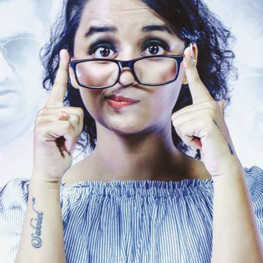An outline for a theatre and acting course module that can take learners from the fundamentals to a more advanced understanding of performance. The module is designed to help students develop skills in acting, understanding character, and learning stagecraft.
Module 1: Introduction to Theatre and Acting
1. Introduction to Theatre
- Objective: Understand the basics of theatre as an art form.
- Topics:
- History of theatre (from classical Greek theatre to contemporary forms).
- Different genres and styles (tragedy, comedy, drama, absurdism).
- The role of theatre in culture and society.
2. Understanding Acting
- Objective: Learn about the essence of acting and its purposes.
- Topics:
- What is acting? (exploring the actor’s role).
- Differences between stage acting and film acting.
- Understanding and using the “actor’s toolkit” (voice, body, emotions).
3. Voice and Diction
- Objective: Develop vocal range and clarity for stage performance.
- Topics:
- Breathing techniques for better projection.
- Exercises for diction and articulation.
- Working with tone, pitch, and pacing.
4. Body Movement and Physicality
- Objective: Learn to use the body as an expressive instrument.
- Topics:
- Body language and non-verbal communication.
- Basic stage movement and spatial awareness.
- Physical warm-up exercises and relaxation techniques.
5. Improvisation Techniques
- Objective: Develop creativity and spontaneity on stage.
- Topics:
- Introduction to improvisation (improv games and exercises).
- Building listening skills and being present in the moment.
- Creating characters and scenes on the spot.
6. Character Development
- Objective: Learn how to create a believable character.
- Topics:
- Analyzing a script and understanding the character’s motivations.
- Creating a character’s backstory.
- Physical and vocal transformation for different roles.
7. Scene Study
- Objective: Apply acting techniques to perform a scene.
- Topics:
- Breaking down scenes (beats, intentions, and objectives).
- Working on dialogue and subtext.
- Partner work for scene rehearsals.
8. Understanding Stagecraft
- Objective: Gain an understanding of the technical aspects of theatre.
- Topics:
- Introduction to stage directions and blocking.
- Basics of lighting, sound, set, and costumes.
- Collaborating with directors, designers, and other actors.
9. Rehearsal Techniques
- Objective: Learn how to effectively rehearse and refine performances.
- Topics:
- The rehearsal process: blocking, run-throughs, and tech rehearsals.
- Working with a director.
- Giving and receiving constructive feedback.
10. Final Performance and Reflection
- Objective: Put all the learned skills into practice with a live performance.
- Topics:
- Rehearse and perform a monologue or scene.
- Live or recorded final performance.
- Group reflection and feedback on performances.
11. Additional Skills and Career Insights
- Objective: Provide further guidance on acting as a profession.
- Topics:
- Audition techniques and tips for success.
- Resume preparation and finding roles.
- Continuous training and professional development in acting.
This course module provides a comprehensive foundation for theatre and acting, focusing on the key skills needed for both performance and understanding theatre as an art form. It is designed to be hands-on, encouraging students to actively participate and apply the techniques they learn throughout the course.
CAREER OPPORTUNITIES
1) Acting/ Theatre & What all we work upon
- Film and Television Artists
- Assistant Director
- Theatre Artists
- Director
- Producer
- Facial expressions and body language
- Professional Portfolio shoots (indoor & outdoor)
- Theatrical and Film Acting
- Documentaries
- Music video shoot
2) Modelling
- Fashion Editorial Modelling
- Commercial Modelling
- Runway Modelling
- Promotional Modelling
- Glamour Modelling
_______________________________________________________________________________________________
Online Payment
BANK DETAILS FOR RTGS / NEFT / IMPS
PUPPETS PICTURE PVT.LTD
Bank Name : SBI
ACCOUNT Number : 33930811892
IFSC Code : SBIN0012985
Branch : H-4 SECTOR 11 NOIDA
Paytm Number – 7289087004










